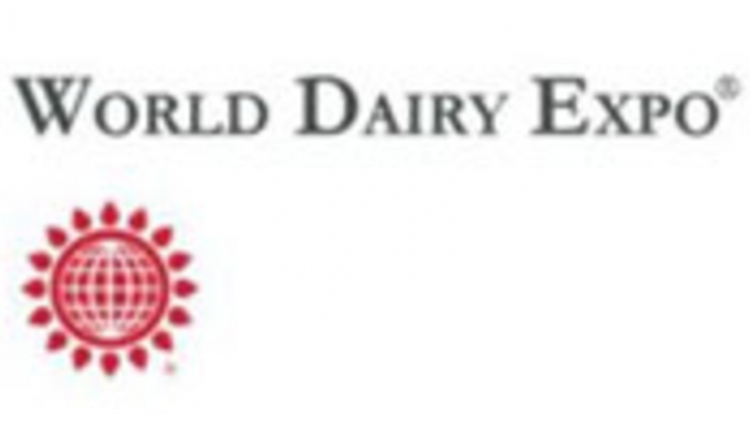The information below has been supplied by dairy marketers and other industry organizations. It has not been edited, verified or endorsed by Hoard’s Dairyman.
Three recent research studies published in the peer-reviewed, scientific journal Nutrients, add to a growing body of evidence reinforcing the important role beef plays in closing nutrient gaps for vulnerable populations such as adolescence, pregnancy and aging adults. Each study analyzed the National Health and Nutrition Examination Survey (NHANES), (a large dataset gathered from a comprehensive, nationally representative survey of Americans) to assess beef intake and the contribution of nutrients from beef-containing diets.
“Our analysis shows that people at various life stages – adolescents, pregnant and lactating women and older adults –who eat about 2 ounces of beef a day, on average, consume more essential nutrients in their meals, helping them better achieve overall nutrient adequacy,” said Victor Fulgoni III, PhD, lead study author. “Meals with nutrient-dense beef may help improve health by delivering critical nutrients that support key life milestones.”
Adolescents (14-18 years old)
Adolescence is a critical life stage with increased nutrient needs for optimal growth and development. A combination of greater nutrient requirements and a decrease in diet quality in this life stage leads to nutrient gaps and deficiencies, creating a public health concern. The 2020-2025 Dietary Guidelines for Americans state the constellation of nutrients lacking in adolescents’ diets puts them at greater nutritional risk during rapid growth and development, the onset of puberty, menarche and hormonal changes. Adolescent females are at greater risk for nutrient inadequacy, such as iron deficiency which can lead to anemia.
Beef’s nutrients, such as protein, zinc, B vitamins and iron are essential nutrients needed for proper adolescent development. Based on this analysis, adolescents who regularly eat meals with beef are more likely to meet daily recommendations for essential nutrients and have a lower prevalence for nutrient inadequacies. The researchers found that adolescent beef consumers with an average beef consumption of as little as 1.7 ounces per day had upwards of 15% more intake of calcium, iron, phosphorus, selenium, sodium, choline, vitamin B12 and zinc than adolescents who do not regularly consume beef.
Pregnant and Lactating Women
The importance of proper nutrition in supporting maternal and child health through pregnancy and lactation cannot be overstated. About 95% or more of pregnant and lactating women who eat beef have adequate intakes and meet nutrient recommendations of zinc, calcium, vitamin B12, protein, riboflavin, iron and niacin; yet many pregnant and lactating women who do not regularly eat beef are inadequate in these nutrients. For example, based on this analysis, it is estimated that an additional 830,000 pregnant and lactating women would no longer have inadequate intakes for zinc if they incorporated as little as 1.74 ounces of beef into their daily diet.
Older Adults (60 years and older)
A significant proportion of older U.S. adults consume less than the recommended amounts of key nutrients each day, which can have health consequences. This study found older adults who consume beef have improved intake of 12 nutrients, including nutrients often lacking in this population, protein and vitamin B12. The research indicates a higher proportion of this age group would meet nutrient recommendations for protein and vitamin B12, and other essential nutrients by eating about 2 ounces of beef per day in their diet.
Beef Contributes Key Nutrients Across Critical Life Stages
The research reflects that eating meals with beef improved intake of key nutrients in the diet within these vulnerable life stages and helped a greater percentage of the population meet nutrient adequacy for calcium, iron, zinc, thiamin, riboflavin, protein and vitamin B12.
"Beef nourishes Americans’ health at every life stage, with its unique combination of high-quality protein, iron, zinc, choline, and B vitamins. Americans cite beef as one of their top protein choices, with 82% identifying beef as a great source of protein", explained Dr. Shalene McNeill, executive director of nutrition science, health and wellness.
To view the three Beef Checkoff-funded studies in their entirety, visit the links included below.
- Fulgoni K, Fulgoni VL III. Beef Intake Is Associated with Higher Nutrient Intake and Nutrient Adequacy in U.S. Adolescents, NHANES 2001–2018. Nutrients. 2023; 15(23):4996. https://www.mdpi.com/2072-6643/15/23/4996
- Agarwal S & Fulgoni VL III. Contribution of Beef to Key Nutrient Intakes and Nutrient Adequacy in Pregnant and Lactating Women: NHANES 2011–2018 Analysis. Nutrients 2024;16(7):981. https://www.mdpi.com/2072-6643/16/7/981
- Agarwal S, Fulgoni VL III. Beef Consumption Is Associated with Higher Intakes and Adequacy of Key Nutrients in Older Adults Age 60+ Years: National Health and Nutrition Examination Survey 2011–2018 Analysis. Nutrients. 2024; 16(11): 1779. https://www.mdpi.com/2072-6643/16/11/1779
This research was funded by the National Cattlemen’s Beef Association (NCBA), a contractor to the Beef Checkoff. NCBA was not involved in the study design, data collection and analysis, or publication of the findings.
About the Beef Checkoff
The Beef Checkoff Program was established as part of the 1985 Farm Bill. The Checkoff assesses $1 per head on the sale of live domestic and imported cattle, in addition to a comparable assessment on imported beef and beef products. States may retain up to 50 cents on the dollar and forward the other 50 cents per head to the Cattlemen's Beef Promotion and Research Board, which administers the national checkoff program, subject to USDA approval.

About NCBA, a contractor to the Beef Checkoff
The National Cattlemen’s Beef Association (NCBA) is a contractor to the Beef Checkoff Program. The Beef Checkoff Program is administered by the Cattlemen’s Beef Board, with oversight provided by the U.S. Department of Agriculture.




